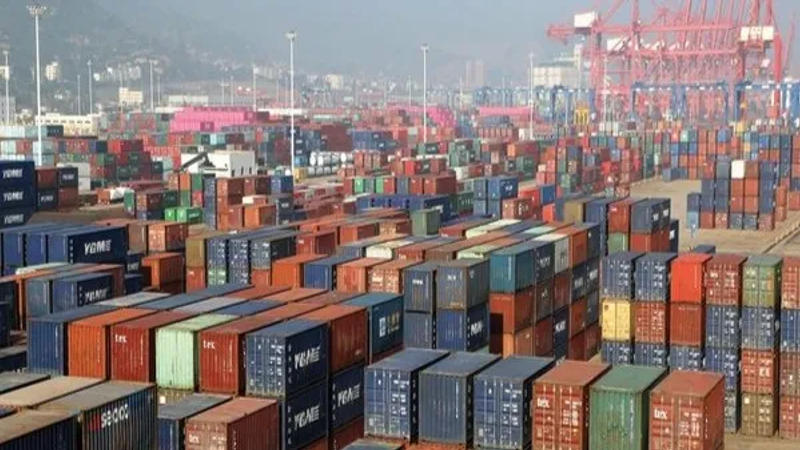Published 17:08 IST, July 22nd 2024
Economic Survey: Trade deficit set to decline with boost in manufacturing
India's merchandise trade deficit decreased to $240 billion in 2023-24 from $265 billion in 2022-23.

India's trade deficit is expected to decline further due to increased domestic manufacturing from the production linked incentive (PLI) schemes and rising exports fuelled by free trade agreements (FTAs), according to the Economic Survey presented on Monday.
The Survey, tabled in Parliament by Finance Minister Nirmala Sitharaman, noted that fluctuations in commodity prices, especially for key imports like oil, metals, and agricultural products, could impact the trade balance and inflation levels. Despite geopolitical challenges affecting merchandise exports, lower international commodity prices have resulted in a reduced trade deficit for FY24 compared to FY23.
India's merchandise trade deficit decreased to $240 billion in 2023-24 from $265 billion in 2022-23. The Survey highlighted that expanding the PLI scheme and developing a competitive manufacturing base in several product categories are expected to further reduce the trade deficit.
Recent FTAs with countries such as Mauritius, Australia, and the UAE are anticipated to increase India's global export market share. The PLI scheme has significantly boosted sectors like mobile manufacturing, IT hardware, pharmaceuticals, telecommunications, and food products, enhancing manufacturing capabilities and reducing import dependency.
The Survey also indicated that a narrower merchandise trade deficit, coupled with rising service exports, has improved the current account deficit (CAD), resulting in a surplus of 0.6 per cent of GDP in Q4 of FY24.
However, it cautioned that the external sector's performance could be threatened by ongoing geopolitical tensions, policy uncertainty, reduced demand from major trading partners, rising trade costs, and commodity price volatility. Disruptions in key shipping routes, such as the Red Sea and Panama Canal, have led to increased journey times and costs, impacting India's maritime trade.
The Survey emphasized the need for policies that balance security concerns with economic considerations, particularly through initiatives like PLI and Make in India, to enhance competitiveness in various product areas. It also highlighted India's potential to become a major global exporter of agricultural commodities and stressed the importance of strengthening regional trade ties to mitigate global demand fluctuations.
"In an era of geopolitical tensions and protectionism, growing India's exports of goods and services will be more challenging," the Survey warned.
Rumki Majumdar, Economist at Deloitte India, commented that India's exports are showing resilience despite global uncertainties, indicating the country's potential to achieve its ambitious target of $2 trillion in exports by 2030-31.
"Transforming our export basket and focusing on higher margins and value addition across various sectors will be key to reaching this goal," Majumdar said.
(With PTI inputs)
Updated 18:03 IST, July 22nd 2024